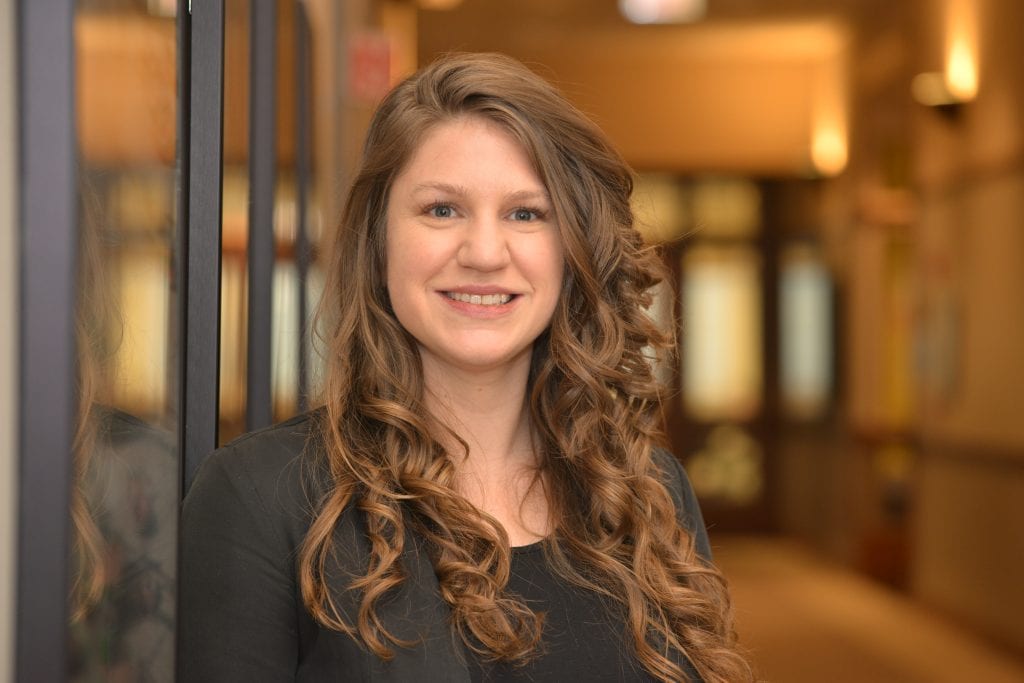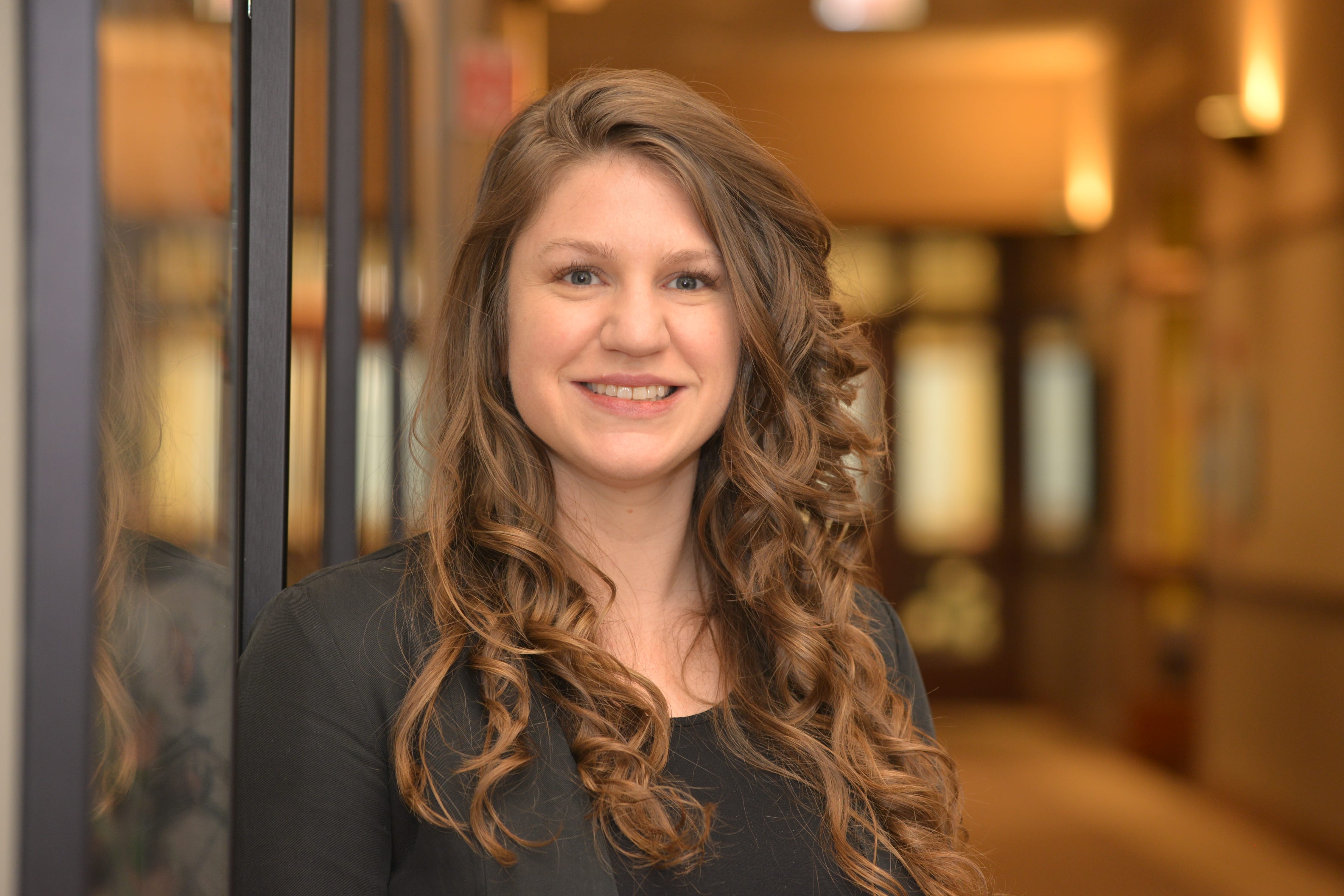
Abigail Ingram, assistant director of the Coleman Entrepreneurship Center, is leading DePaul’s Women in Entrepreneurship Institute initiative.
Entrepreneurship among women has been on the rise nationally for two decades, yet venture capital and other resources are often scarce for women business founders. To help redress this disparity and support the success and sustainability of women-owned firms, the Coleman Entrepreneurship Center has launched the Women in Entrepreneurship Institute (WEI).
Abigail Ingram, assistant director of the Coleman Entrepreneurship Center, says the intent is to create the nation’s first comprehensive institute for women founders that integrates academic learning, research, incubation, funding and public policy. “Right now, women are getting just 2 percent of venture capital funding, and less than 2 percent of women-owned businesses reach a million dollars in revenue,” Ingram says. Illinois also is in the lowest 20 percent of U.S. states when it comes to the economic clout of women-owned businesses, according to the “2017 State of Women-Owned Businesses Report.” “We would like to change that,” Ingram asserts.
WEI’s programming encompasses pitch competitions, business incubation space and women in entrepreneurship fellowships, as well as a research initiative to examine why and how women-owned businesses are funded. A new course in women in entrepreneurship featuring leading women business founders as speakers is being developed. Future plans include funding a women in entrepreneurship academic chair.
WEI is backed by a committee of prominent women entrepreneurs and business leaders, some of whom serve on the Coleman Entrepreneurship Center Advisory Board. A key champion of the effort is Joan Hannant, CEO of the Soma Institute, who says the challenges she faced when she entered entrepreneurship motivated her to support WEI. “The Women in Entrepreneurship Institute is very personal for me, as I see it as a vehicle to provide support and programming to help female founders succeed— support I craved, but could not find when I started out.”
